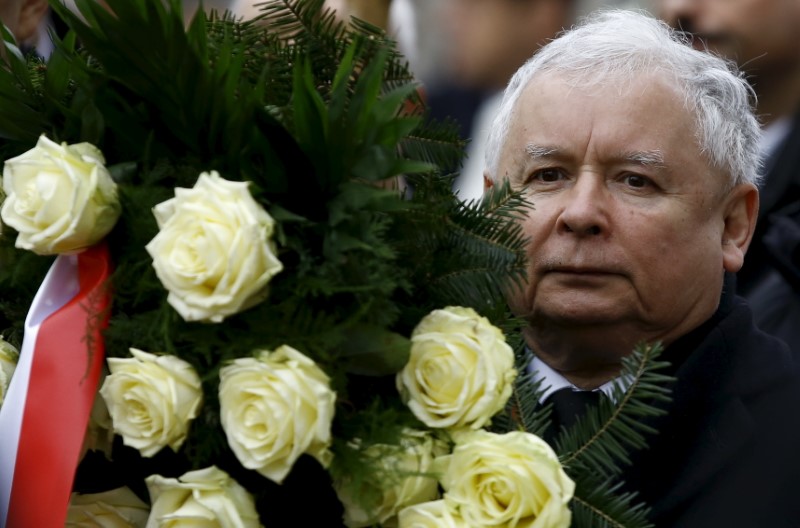By Marcin Goclowski
WARSAW (Reuters) - The Polish government's tightened hold on public media, its conflict with the highest court and recent anti-terrorism legislation have jeopardised free expression in the country, according to Europe's main rights and democracy watchdog.
Since taking power last year, the conservative nationalist Law and Justice (PiS) party has given the government the right to appoint state broadcaster chiefs, given security forces more surveillance powers and tried to curb the Constitutional Court.
The moves have put Poland at odds with allies in the west of the EU and the United States, who fear the eurosceptic PiS's approach is eroding democracy and the rule of law in Poland, a ex-communist state admitted to the EU in 2004.
"What we are facing at the moment is a very complex situation that is definitely undermining the independence of public service broadcasting in Poland," said Dunja Mijatovic, the representative for media freedoms for the 57-nation Organisation for Security and Cooperation in Europe (OSCE).
"The problems in Poland ... are very much related to the constitutional changes that are affecting among other things also free expression," she told Reuters in an interview.
Mijatovic said that more than 120 broadcast journalists had been sacked. Polish media said they were fired because they were insufficiently supportive of the PiS.
"What has happened is definitely a reason for concern - the appointment procedures of board members, political control over those boards, and appointments to public media."
She recalled that Poland was in the forefront of east European countries that broke away from Soviet domination and embraced democracy and free speech a quarter century ago.
"(Without this), it takes you to the dark ages."
The PiS has also signalled that foreign ownership of private news outlets should be reduced, although senior party officials concede this would be difficult to bring about.
Germany's Bauer Media owns the most popular Polish radio station, RMF, while Swiss-German Ringier Axel Springer owns Poland's bestselling tabloid Fakt.
In July the European Commission urged Poland to implement within three months measures to protect the powers of the constitutional court after a series of new appointments and reforms raised fears for the tribunal's integrity.

PiS officials say the changes to the court are aimed at streamlining the institution and that it has a broad social mandate to carry out reforms. It accuses critics of taking sides with their political rivals.